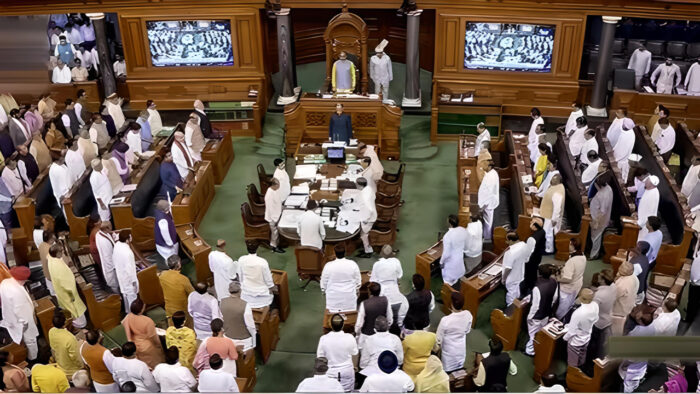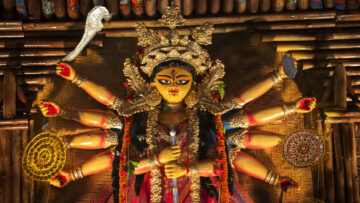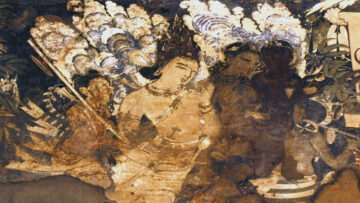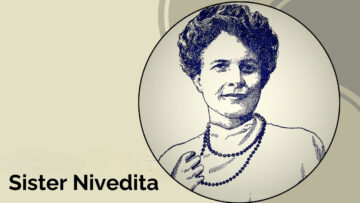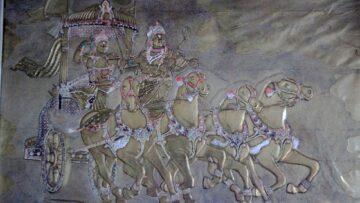(Exploring Ancient Sanskrit satires on Meeting Conundrums)
Abstract
Satire has been a common tool employed by poets throughout history to expose the realities of royal courts. The hilarious cartoons of R. K. Laxman that illustrate socio-political facts are more proof of the potent ability of creative people to express important ideas succinctly. Poets like Kshemendra, Jaganntha Paṇḍita, Nîlakaṇtˤha Dąkshita, and others are celebrated in Sanskrit literature for their sarcastic verses that serve as mirrors to the outside world and remain relevant even in contemporary times. This article considers ‘meeting ethics’ by quoting a few poems from Nîlakaṇt̤ha and other sources. The goal of the article is to provide a glimpse of ancient Sanskrit poetry for pointers on debates and meetings.
Introduction
The 17th-century poet Jagannātha Paṇḍita, in his poetic work Bhāminīvilāsa, humorously compared an unruly meeting with a meeting of monkeys.
युक्तं सभायां खलु मर्कटानां शाखास्तरूणां मृदुलासनानि
सुभाषितं चीत्कृतिरातिथेयी दन्तैर्नखाग्रैश्च विपाटितानि
yuktaṃ sabhāyāṃ khalu markaṭānāṃ śākhāstarūṇāṃ mṛdulāsanāni
subhāṣitaṃ cītkṛtirātitheyī dantairnakhāgraiśca vipāṭitāni[1]
(In the assembly of monkeys, the soft branches of trees serve as comfortable seats, the monkeys’ cries are considered valuable advice, and they express genuine hospitality by scratching each other with their fingernails and teeth.)
This satirical verse hints at the possibility that the clamour and chaos in contemporary parliamentary sessions may not be a recent phenomenon; similar disorderly meetings might have existed in ancient times.
This leads us to contemplate two key questions: Did our ancestors have any established guidelines for addressing the challenges of reaching consensus, or did “the might” simply dictate the course of action? Can we draw valuable lessons from their experiences to steer modern meetings toward ethical discussions, rather than viewing them as mere contests of victory and defeat?
Meeting Ethics
Since the time of the Vedas, knowledge transmission has occurred through various forms of debate and discourse. These are known by names such as brahmodya, vāda, praśna, and śastrartha, among many others. However vāda has evolved into a commonly used term for discussions in the contemporary world. The significance of vāda in the Indian knowledge system is underscored by the fact that the Nyaya Darshana treatise defines vāda (discussions and discourses) in its very first sutra.
प्रमाण-प्रमेय-संशय-प्रयोजन-दृष्टान्त-सिद्धान्तावयव-तर्कनिर्णय-वाद-जल्प-वितण्ड-हेत्वाभासच्छलजातिनिग्रहस्थानानां तत्वज्ञानान्निःश्रेयसाधिगमः
pramāṇa-prameya-saṃśaya-prayojana-dṛṣṭānta-siddhāntāvayava-tarkanirṇaya-vāda-jalpa-vitaṇḍa-hetvābhāsacchalajātinigrahasthānānāṃ tatvajñānānniḥśreyasādhigamaḥ
(Vāda, jalpa, and vitaṇḍa are different forms of “kathà”. When discussions aim to uncover knowledge, they are termed vāda. Conversely, discussions driven solely by the desire to win, regardless of truth, are classified as jalpa. Vitaṇḍa occurs when the debater engages in argumentation for its own sake, without seeking resolution.)
The way debates and discourses were structured in the “bhasyas” and “darshanas” was to first reaffirm the issue being argued (poorvapaksha), then point out the gaps in them, and finally suggest a new proposition (sidhantapaksha) to fill those gaps. The structure of any debate (verbal or textual) was in the form of vāda. The exception to it is a book by Mahâkavi Šriharșa—Khanḍana-khanḍa-khādyam. Here the poet provides the poorvapaksha with different philosophies, drills holes in them, but does not close them with his suppositions. Notwithstanding the fact that it is a textbook case of vitaṇḍavâda, the text is highly regarded for its thorough understanding of the subject. This text is more of an exception than a rule. Vitaṇḍavâda and “jalpa” were frowned upon.
However, dialogues and deliberations were not limited to philosophical discussions or royal court proceedings. Poets also had a role to play, and they challenged each other through poetic discourses, sometimes in formal settings of “kavya-sammelans.” Some of Mahâkavi Nîlakaṇt̤ha Dĩkshita’s humorous predicaments give us a glimpse of that world.
Nîlakaṇt̤ha Dĩkshita on destructive behaviors
Mahākavi Sri Nîlakaṇt̤ha Dĩkshita was a poet of the early seventeenth century, an adviser to the King Šri Tirumalai Nayaka of Madurai, minister in the Pandya kingdom. In the first sarga of his mahakavya Šivalîlarnava, he takes a dig at the argumentative “tarkikas” (logicians) –
घट्टोपविष्टानिव वाग्भिरर्थैः शब्दागमज्ञानुपसान्त्वयामः ।
उत्प्लुत्य भल्लूकवदापतन्तः कथं नु जय्या इह गौतमीयाः ॥ ७१॥
ghaṭṭopaviṣṭāniva vāgbhirarthaiḥ śabdāgamajñānupasāntvayāmaḥ ।
utplutya bhallūkavadāpatantaḥ kathaṃ nu jayyā iha gautamīyāḥ ॥ 71॥
(Even a grammarian (like a person manning a tollgate) can be placated, either through money/meanings, but who can win the “Gutamiya” (logicians), who jump and pounce upon you like a grizzly bear.)
Maybe the poet is alluding to Jalpa and vitaṇḍa type of discourse prevalent then. These types of behaviors are causes of dysfunctional meetings even now.
Another verse in the same book explains one of the signs of destructive people—people who reject a creative work just because they did not compose it. They therefore strive uselessly to uncover faults in it.
एको हि दोषः परकीयतैव पद्येषु सर्वेष्वपि दुर्जनानाम् ।
तस्मिन् पुरस्थेऽपि कियद्यतन्ते वृथैव ते दोषगवेषणाय ॥ ६२॥
eko hi doṣaḥ parakīyataiva padyeṣu sarveṣvapi durjanānām ।
tasmin purasthe’pi kiyadyatante vṛthaiva te doṣagaveṣaṇāya ॥ 62॥
(The only defect “durjanas” find in poems is that they are written by others. Even while facing the poet, they try hard, in futility, to find defects in them.)
Another trait of destructive people is that they steal others’ work without giving them due credit.
स्वोक्तिं मुषित्वा पुरतः पठन्तं स्वस्यैव पश्यन् कविसाहसाङ्कम् ।
प्राज्ञो जनः किं प्रतिपद्यतां तमाहन्तु वा स्वोदरमाहतां वा ॥ ५१॥
svoktiṃ muṣitvā purataḥ paṭhantaṃ svasyaiva paśyan kavisāhasāṅkam ।
prājño janaḥ kiṃ pratipadyatāṃ tamāhantu vā svodaramohatāṃ vā ॥ 51॥
(The poet asks what should he do in a situation when some other individual (durjana), confident like a legendary king Sāhasāṅka, presents the poet’s verses as his own and that too in the poet’s very presence. He seeks counsel from the wise, whether to hit this “durjana” or hit his own stomach.)
This reflects well with a frequent grievance in the corporate realm or any other place with multiple people working towards a common goal—someone else appropriates credit for others work, especially during a meeting presentation.
Regardless of what the motive is, there are people who use foul language to overwhelm others. The poet has following to say to such people:
आपूर्य वक्त्रं लशुनैर्विधाता किं निम्बसारैः कुधियामसिञ्चत् ।
न चेत् कथं वाचि ततः क्षरन्त्यां स पूतिगन्धः स च तिक्तभावः ॥ ४३॥
āpūrya vaktraṃ laśunairvidhātā kiṃ nimbasāraiḥ kudhiyāmasiñcat ।
na cet kathaṃ vāci tataḥ kṣarantyāṃ sa pūtigandhaḥ sa ca tiktabhāvaḥ ॥ 43॥
(Did Almighty create the speaker by filing his mouth with garlic and nurturing him with the bitter “neem” juice? If not, how can one explain the foul smell and the bitter “bhava” coming out of his words.)
Similarly, in his other literary works such as Śāntivilāsaḥ, Anyāpadeśaśatakam, Vairāgyaśatakam, Kaliviḍambanam, and Sabhārañjanam, the poet quotes many such examples to show dysfunctional behaviors of debaters and poets. In this essay, only a few sample verses are described so that interested readers can look into the original work for inspiration.
If there are problems, there are solutions as well. The Sulabhā and Janaka Samvada in Šantiparva of Mahabharata has a chapter which has some prescriptive guidelines to avoid such conundrums. This will be covered in another essay later.
Conclusion
Established rules and protocols for Vāda and Samvāda, governing debates and discussions, have been evident since ancient times, as evidenced by the extensive body of ancient literature in both oral and written forms. Maintaining decorum in meetings and discussions is crucial for civilized communication. In the modern era, it is common to see instances where individuals have taken liberties with language, be it on social media or television channels.
One has to remember that language is a gift to humans and should be used as a tool for the development of the world. As Nîlakaṇt̤ha Dĩkshita puts in his own indomitable way,
तिर्यङ्मनुष्यव्यतिरेकहेतुर्देव्या गिरामेव कटाक्षपातः ।
प्रज्ञाविशेषास्तु परे जनानां प्रायो दिशन्ति श्वशृगालसाम्यम् ॥
tiryaṅmanuṣyavyatirekaheturdevyā girāmeva kaṭākṣapātaḥ ।
prajñāviśeṣāstu pare janānāṃ prāyo diśanti śvaśṛgālasāmyam ॥
“Saraswati’s blessing, that is language, is the intelligence that a human posseses which differentiates him from lower forms of lives. Other forms of intelligence do not help us to differentiate ourselves from dogs and wolves“.
In conclusion, meetings become ethical when they are effective and respect the four limbs of our culture—dharma, artha, kāma, and moks̱a. When members derail meetings through cacophony, they not only impact the outcomes but also cause a loss in person hours, which is invaluable. As a society, we need to introspect to see how any meeting of minds could be made more fruitful. As this essay shows, our ancient texts can be a source for us to study and get insights on how to improve our behaviors in social interactions.
Today, the world has moved towards remote participation, with meetings conducted over electronic waves. Meetings are becoming mechanical and recorded as well. So it is imperative that people follow the meeting decorum, as intuitiveness in interpersonal connection is missing.
References
- Bhāminīvilāsa, Sri Jagannātha Paṇḍita, (17 CE )
- Nyaya Darśanam, Gautama Muni, ~5 BCE
- Mahabharatam, Śānti Parva, Vyāsa Muni, Gitāpress
- Śîvalîlarnava, Mahākavi Šri Nîlakaṇt̤ha Dĩkshita, ~1650 CE
- Khanḍana-khanḍa-khādyam – Śrihars̱a – 11-12 CE
Acknowledgement
I am thankful to Dr. Shankar Rajaraman for introducing me to the works of Nîlakaṇt̤ha Dĩkshita et al. and patiently explaining the verses. I am grateful for his review and suggestions as well.
[1] Anyoktyullāsaḥ bhāminīvilāse
Disclaimer: The opinions expressed in this article belong to the author. Indic Today is neither responsible nor liable for the accuracy, completeness, suitability, or validity of any information in the article.

